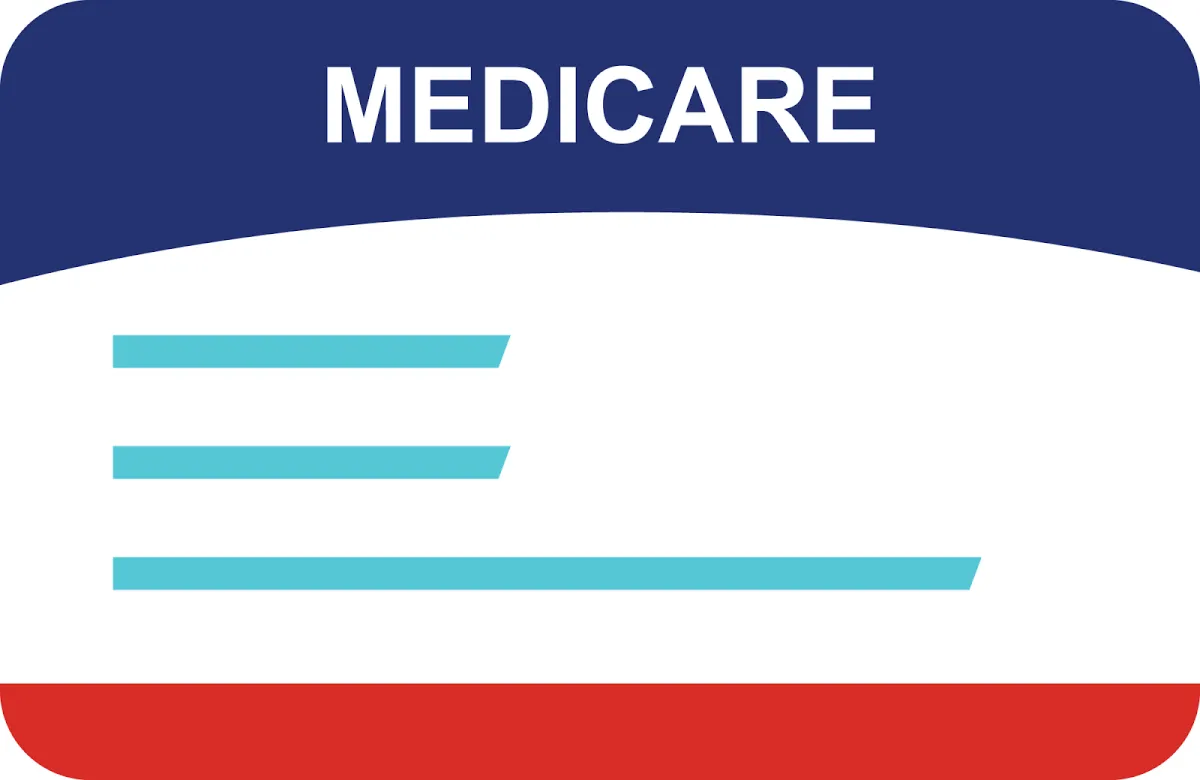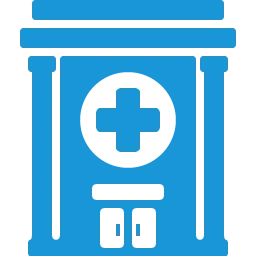Specializing In Medicare Health Insurance Plans
Clients First, Always!
Choosing The Right Medicare
Coverage Should Not Be
Complicated
Contact me today for a FREE consultation

What is Medicare?
Medicare is a federal health insurance program in the United States that provides coverage for certain healthcare services to eligible individuals:
People aged 65 and older: Most U.S. citizens become eligible for Medicare when they turn 65, regardless of their income or medical history.
Certain younger individuals with disabilities: People under the age of 65 with specific disabilities, such as end-stage renal disease (ESRD) or amyotrophic lateral sclerosis (ALS), may also qualify for Medicare.
Medicare is divided into several parts, each covering different aspects of healthcare.
What Are The Parts Of Medicare?

Part A
(Hospital Insurance)
Part A covers inpatient hospital care, skilled nursing facility care, hospice care, and some home healthcare services. Most people don't pay a premium for Part A if they or their spouse paid Medicare taxes while working.

Part B
(Medical Insurance)
Part B covers doctor's visits, outpatient care, preventive services, and some medical equipment and supplies. Beneficiaries pay a monthly premium for Part B.

Part D
(Prescription Drug Coverage)
Part D provides prescription drug coverage through private insurance plans. Beneficiaries pay a monthly premium for Part D coverage, and there are various plans to choose from.
What Are Your Medicare Options?
Original Medicare
Original Medicare (Parts A and B):
Part A (Hospital Insurance): Covers inpatient hospital care, skilled nursing facility care, hospice care, and some home health care.
Part B (Medical Insurance): Covers doctor's services, outpatient care, preventive services, and some medical equipment and supplies.
You can use any doctor or hospital that takes Medicare, anywhere in the United States.
You can add:
Prescription Drug Coverage (Part D):
Part D plans are also provided by private insurance companies approved by Medicare.
These plans help cover the cost of prescription drugs.
You can purchase a standalone Part D plan to go alongside Original Medicare or get it included in a Medicare Advantage plan.
You can also add:
Medigap (Medicare Supplement Insurance):
Medigap policies are also offered by private insurance companies.
They help pay some of the costs that Original Medicare doesn't cover, such as copayments, coinsurance, and deductibles.
You must have Original Medicare (Parts A and B) to be eligible for a Medigap policy.
You must continue to pay your Part B premium along with any additional premium required by the Medigap plan.
Medicare Advantage (Part C)
Medicare Advantage (Part C):
Medicare Advantage plans are offered by private insurance companies approved by Medicare.
These plans combine the coverage of Original Medicare (Part A and Part B) and usually include prescription drug coverage (Part D).
In most cases, you can only use doctors who are in the plan's network.
In many cases, you may need to get approval from your plan before it covers certain drugs or services.
Plans may have lower out-of-pocket costs than Original Medicare.
Plans may offer some extra benefits that Original Medicare doesn't cover -- like vision, hearing, and dental services.
They may also offer health and wellness programs.
You must continue to pay your Part B premium along with any additional premium required by the Advantage plan.
What's included:
Part A
Part B
Most plans include:
Part D
Some Extra Benefits
Some plans also include:
Lower Out-Of-Pocket Costs
Confused About Your Medicare Options?
Don't worry, I am here to help you navigate your Medicare journey.

Choosing the right Medicare plan is a crucial decision for several important reasons:
Healthcare Coverage: Selecting the right plan ensures you have access to the necessary healthcare services and treatments when you need them.
Financial Security: Healthcare costs can be a significant burden, especially as you age and require more medical care. Medicare can help alleviate these costs, but the specific plan you choose will determine how much you pay out of pocket for services, prescriptions, and premiums. Picking the right plan can protect your financial well-being.
Health Needs and Preferences: Everyone's health needs are different. Some may require extensive medical care, while others may be relatively healthy. Medicare offers various plans, from Original Medicare to Medicare Advantage, each with its own benefits and limitations. Choosing the plan that aligns with your health needs and preferences is essential.
Prescription Drug Coverage: If you need prescription medications, selecting the right Medicare plan is crucial. Medicare Part D provides prescription drug coverage, but not all plans cover the same drugs or have the same co-payments. You'll want to choose a plan that covers your medications at a reasonable cost.
Access to Healthcare Providers: Your choice of Medicare plan can impact your ability to see specific healthcare providers. Some plans have networks of doctors and hospitals, while others offer more flexibility in choosing providers. It's important to ensure your preferred healthcare providers are in-network to avoid additional costs.
Preventative Care: Many Medicare plans offer coverage for preventative services like vaccinations, screenings, and wellness programs. Choosing a plan that supports preventative care can help you maintain your health and detect issues early.
Life Changes: Your health and financial situation can change over time. Reassessing your Medicare plan during open enrollment periods allows you to adjust your coverage to meet your evolving needs.
Peace of Mind: Having appropriate Medicare coverage can provide peace of mind, knowing that you have access to necessary healthcare services without incurring excessive costs. This can significantly reduce stress during times of illness or injury.
Given the importance of these factors, it's essential to research your options, compare plans, and consider your individual circumstances when choosing a Medicare plan. Consulting with an independent Medicare health insurance professional can also provide valuable guidance in making this crucial decision.
I have a question for you:
Would you buy a home without using an independent real estate agent?
I bet your answer is no!
Then, why would you buy a Medicare plan without using an independent Medicare health insurance agent?

Contact me and get answers to your Medicare questions today.
Let's work together to find a Medicare plan that works best for your needs. As your independent health care resource, I can offer you Medicare plans from twelve private insurance companies. So you are guaranteed to get the plan that is right for your needs.
Frequently Asked Questions
Who is eligible for Medicare?
You are eligible for Medicare if you are:
At least 65 years old.
Under 65 but have a disability.
Any age and have End-Stage Renal Disease (ESRD) or
Amyotrophic Lateral Sclerosis (ALS, also known as Lou
Gehrig's disease).
When can I enroll in Medicare?
Determine When to Enroll:
Initial Enrollment Period (IEP): Most people become eligible for Medicare when they turn 65.
Your IEP includes:
The three months before your 65th birthday.
The month of your 65th birthday.
The three months after your 65th birthday.
If you're not receiving Social Security benefits, you must actively enroll during your IEP.
If you are already receiving Social Security or Railroad Retirement benefits, you will be automatically enrolled in Medicare Part A and Part B during your IEP.
What if I miss my Initial Enrollment Period (IEP)?
General Enrollment Period (GEP):
If you missed your Initial Enrollment Period, you can sign up for Medicare during the General Enrollment Period, which runs from January 1st to March 31st each year. However, be aware that there may be late enrollment penalties for Part B coverage if you didn't enroll when you were first eligible.
How do I sign up for Medicare?
Enroll in Part A and/or Part B:
If you're not automatically enrolled, you can apply for Medicare:
Online through the Social Security Administration (SSA) website.
Be visiting your local Social Security office.
By calling the SSA at 1-800-772-1213.
How much does Medicare cost?
The cost of Medicare varies depending on which parts you choose and your income. Most people do not pay a premium for Part A, but there are monthly premiums for Part B and Part D. Medicare Supplement (Medigap) plans have monthly premiums. Medicare Advantage plans may also have monthly premiums.
Will I pay more for Medicare if my income is higher?
Yes, the cost of Medicare can vary based on your income. If your income is higher, you may pay more for Medicare.
Medicare has different parts, and the two main parts that can be affected by your income are:
Medicare Part B: This covers outpatient services, such as doctor visits and preventive care. Most people pay a standard monthly premium for Part B. However, if your income is above a certain threshold, you may be subject to an Income-Related Monthly Adjustment Amount (IRMAA). This means you'll pay an additional premium on top of the standard premium. The income thresholds are determined by the IRS and can change from year to year.
Medicare Part D: This covers prescription drug benefits. Like with Part B, if your income is above a certain threshold, you may pay an additional amount for your Part D premium. This extra cost is also known as the Income-Related Monthly Adjustment Amount (IRMAA).
The income thresholds that trigger higher premiums for both Part B and Part D are based on your Modified Adjusted Gross Income (MAGI) from two years prior. This means that your income in a specific year affects your Medicare premiums in a subsequent year. If your income decreases in the future, your Medicare premiums can also decrease.
To determine your specific Medicare premiums based on your income, you can refer to the Medicare website or contact the Social Security Administration. They will provide you with information about the premium amounts based on your income level.
Can I change my Medicare coverage?
Yes, you can change your Medicare coverage during the Annual Enrollment Period (AEP) from October 15 to December 7. You can also make changes during certain Special Enrollment Periods (SEPs) if you qualify.
What is the Annual Enrollment Period (AEP) for Medicare?
The Annual Enrollment Period (AEP) for Medicare, also known as the Medicare Open Enrollment Period, is an annual period during which Medicare beneficiaries can make changes to their Medicare coverage. It occurs from October 15th to December 7th each year.
During the AEP, Medicare beneficiaries have the following options:
Medicare Advantage Plan (Part C): You can switch from Original Medicare (Part A and Part B) to a Medicare Advantage Plan or switch from one Medicare Advantage Plan to another.
Medicare Prescription Drug Plan (Part D): You can join a Medicare Prescription Drug Plan, switch from one Part D plan to another, or drop your Part D coverage altogether.
Original Medicare (Part A and Part B): If you have a Medicare Advantage Plan, you can switch back to Original Medicare.
Medigap: If you have a Medicare Advantage Plan, you may be able to apply for a Medigap (Medicare Supplement) policy during certain circumstances.
It's important for Medicare beneficiaries to review their current coverage and needs during the Annual Enrollment Period to make any necessary changes for the upcoming year. Any changes made during this period take effect on January 1st of the following year.
What is the Medicare Advantage Open Enrollment Period (MA OEP)?
The Medicare Advantage Open Enrollment Period (MA OEP) is a specific enrollment period that allows individuals who are already enrolled in a Medicare Advantage plan to make certain changes to their coverage.
Here's what the Medicare Advantage Open Enrollment Period entails:
Timing: The Medicare Advantage Open Enrollment Period occurs annually from January 1st to March 31st.
Eligibility: This enrollment period is for individuals who are already enrolled in a Medicare Advantage plan (also known as Medicare Part C). It does not apply to those with Original Medicare (Part A and Part B) or those with standalone Medicare prescription drug plans (Part D).
What Could Be Done:
Switch Plans: During the MA OEP, individuals already in a Medicare Advantage plan could switch to a different Medicare Advantage plan. For example, you might want to switch to a plan with different coverage options, costs, or network providers.
Disenroll: You could also use this period to disenroll from your Medicare Advantage plan and return to Original Medicare (Part A and Part B). You’ll also be able to join a separate Medicare drug plan.
Limitations: There were some limitations to what you can do during the MA OEP. For instance, you cannot switch from Original Medicare (Part A and Part B) to a Medicare Advantage Plan, switch from one standalone Part D prescription drug plan to another or enroll in a Part D plan if you have Original Medicare.
One-Time Change: It's important to note that this is a one-time opportunity during the MA OEP. In other words, you couldn't make multiple changes or switch plans multiple times during this period. The changes you make will be effective on the first day of the month after the plan gets your request.
What is Medicare Advantage?
Advantage Plans (also known as Medicare Part C) are comprehensive plans that include the same benefits of Medicare Parts A and B plus additional coverage.
▪ Part A covers hospitalization, home care and other inpatient medical needs.
▪ Part B covers outpatient care such as doctor visits, medical tests, screenings and preventive care.
Regulated by Center for Medicare & Medicaid Services (CMS).
Medicare Advantage plans are administered through private insurers who typically give more coverage options.
Typically include drug coverage (also known as Medicare Part D).
May offer coverage in areas Original Medicare does not, such as:
▪ Routine dental care including x-rays, exams, and dentures.
▪ Vision care including glasses and contacts.
▪ Hearing care including testing and hearing aids.
▪ Wellness programs and fitness center memberships.
What is Medicare Supplement Insurance (Medigap)?
Original Medicare pays for many, but not all, health care services and supplies. Medicare Supplement Insurance (Medigap) is extra insurance you can buy from a private health insurance company to help pay your share of out-of-pocket costs in Original Medicare, like copayments, coinsurance, and deductibles.
If you have a Medigap policy and get care, Medicare will pay its share of the Medicare-approved amounts for covered health care costs. Then, your Medigap policy pays its share. You pay the private insurance company a monthly premium for your Medigap policy in addition to the monthly Part B premium you pay to Medicare.
Medicare Supplement Insurance covers some of the gaps in Original Medicare (Medicare Parts A and B) coverage.
What is Medicare Prescription Drug Insurance (Part D)?
Medicare Part D helps cover the cost of prescription drugs. Part D is optional and only provided through private insurance companies approved by the federal government. However, Part D is offered to everyone who qualifies for Medicare. Costs and coverage may vary from plan to plan.
There are 2 ways to get Medicare Part D prescription drug coverage:
1) As a standalone prescription drug plan with Medicare: If you have Medicare Part A and Part B (also called Original Medicare), you can add a Part D prescription drug plan to your existing coverage.
2) As part of a Medicare Advantage plan (Medicare Part C): Medicare Advantage plans include all your Part A and Part B coverage. They may also include prescription drug insurance. Not all Medicare Advantage plans include prescription drug coverage, and you must already have Part A and Part B to qualify for Medicare Advantage.

Licensed Insurance Agent
Medicare has neither reviewed nor endorsed this information. Not connected with or endorsed by the United States government or the federal Medicare program.
We do not offer every plan available in your area. We represent a number of MA organizations, which offer products in your area. Any information we provide is limited to those plans we do offer in your area. Please contact Medicare.gov, 1-800-MEDICARE, or your local State Health Insurance Program to get information on all of your options.
© 2023 Robert Vaughan Insurance Solutions All Rights Reserved







